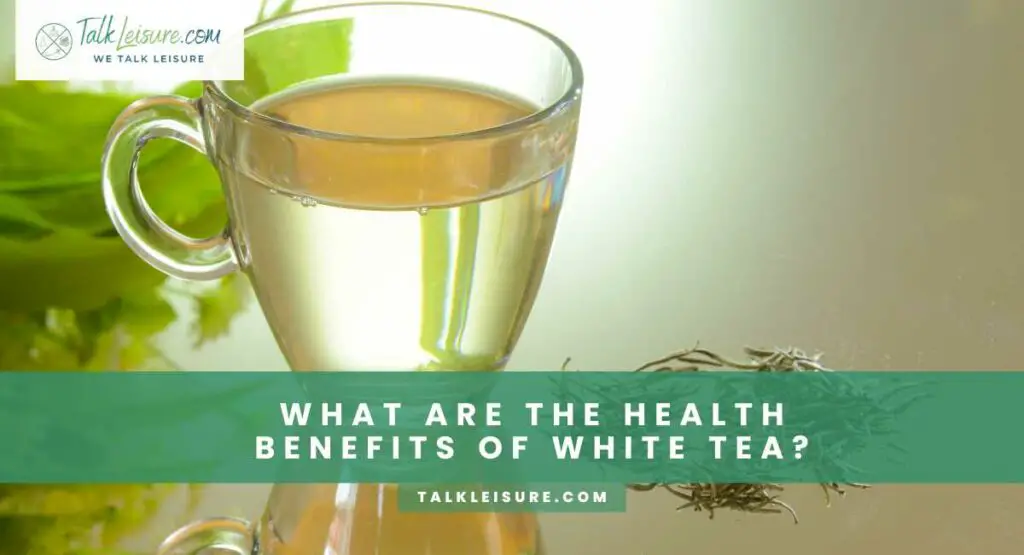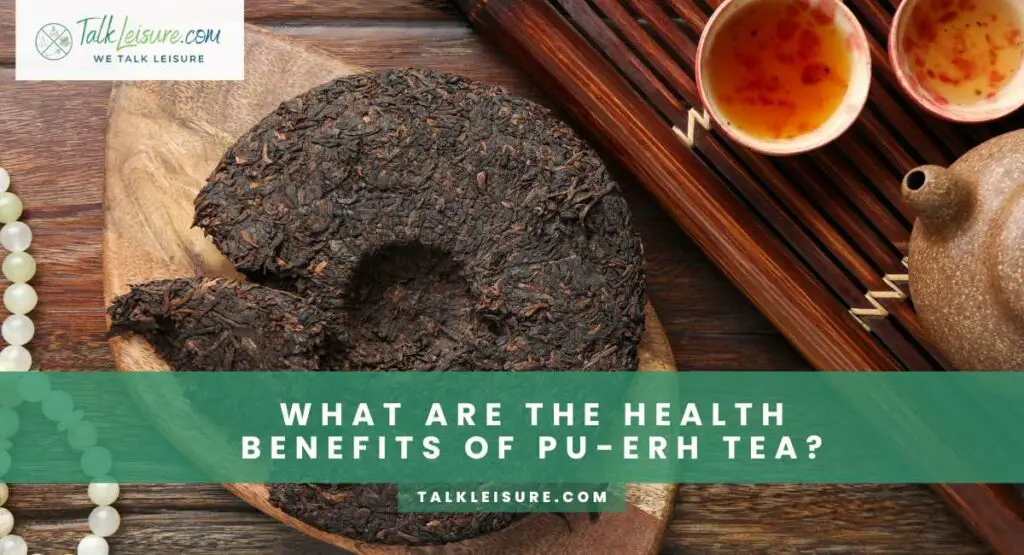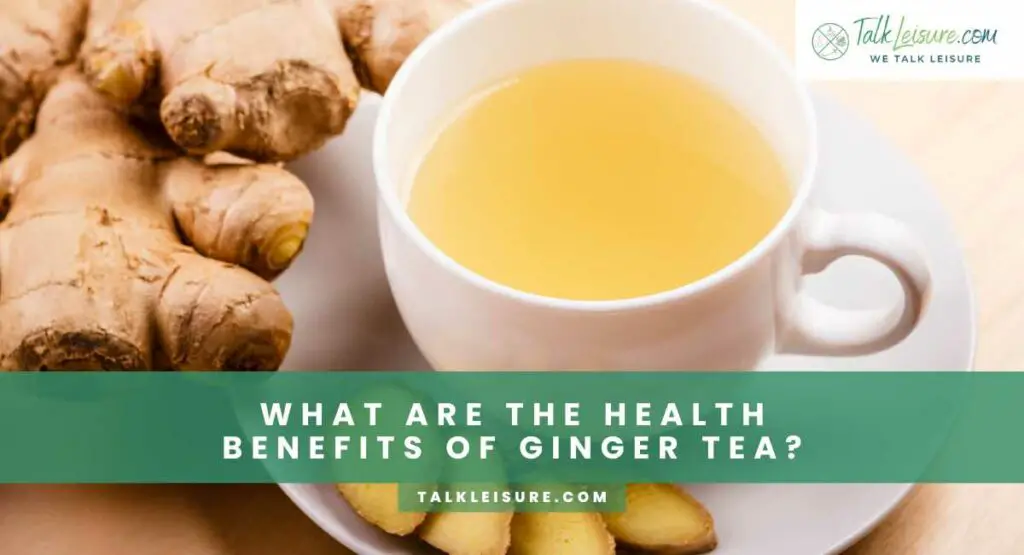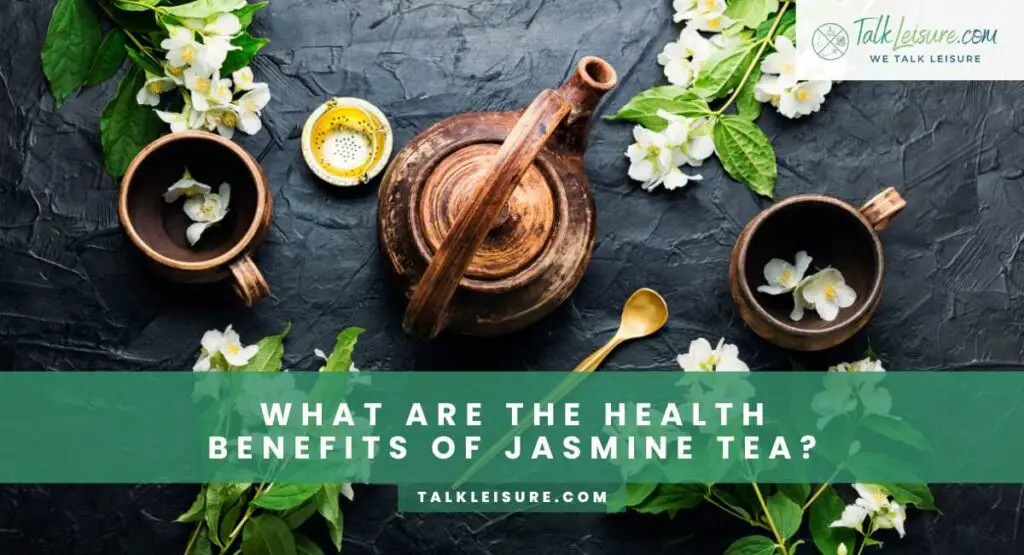Hey there, fellow tea enthusiasts and curious minds! Grab your favorite mug and get ready to dive into a world of steep wonders. We’re about to spill the tea on, well, tea! From soothing herbal blends to powerhouse green potions, there’s a lot more to this humble beverage than just cozying up on a rainy day.
From green’s weight loss aid to black’s heart benefits, each tea type offers unique advantages. White and herbal provide antioxidants, while oolong aids metabolism. Pu-erh aids digestion, mate energizes, ginger aids digestion, and turmeric fights inflammation. Jasmine brings a calming touch.
We’re talking antioxidants, zen-inducing compounds, and benefits that’ll make your grandmother’s herbal remedies blush.
So, whether you’re sipping for health, comfort, or just because it pairs splendidly with a biscuit, join us on this journey as we uncover the incredible health benefits of different types of tea. Let’s steep into it! 🍵
Also read: A beginner’s guide to high tea: etiquette, menu, and more.

Health Benefits of Different Types of Tea
Antioxidant Properties of Tea
- Tea is rich in antioxidants, which help neutralize harmful free radicals in the body, reducing cell damage and lowering the risk of chronic diseases.
- Tea and Weight Management
- Certain compounds in tea, like catechins, have been associated with boosting metabolism and aiding in weight-loss efforts.
- Tea for Heart Health
- Regular consumption of tea has been linked to lower cholesterol levels, improved blood vessel function, and a reduced risk of heart disease.
- Tea and Digestive Health
- Tea for Stress Relief and Relaxation
- The presence of L-theanine in tea can promote relaxation and reduce stress levels, leading to improved mental well-being.
- Tea and Improved Cognitive Function
- Tea and Skin Health
- The antioxidants in tea can help combat skin aging and damage, promoting a healthier complexion.
- Tea and Dental Health
- Certain compounds in tea may help inhibit the growth of bacteria in the mouth, reducing the risk of tooth decay and gum disease.
- Tea and Immune System Support
- Tea is packed with vitamins, minerals, and antioxidants that contribute to a stronger immune system, aiding in the body’s defense against illnesses.
Tea and Bone Health
- Some types of tea, like green tea, have been associated with improved bone density and a reduced risk of osteoporosis.
Tea and Blood Sugar Regulation
- Certain teas, such as green tea, have shown potential in regulating blood sugar levels, which is beneficial for individuals with diabetes or insulin resistance.
Tea and Anti-inflammatory Effects
- The presence of certain compounds in tea may help reduce inflammation in the body, which is linked to various chronic diseases.
Tea and Cancer Prevention
- The high levels of antioxidants in tea may help protect cells from DNA damage and inhibit the growth of cancerous cells.
Tea and Liver Health
- Some studies suggest that compounds in tea may support liver health by aiding in detoxification processes.
Tea and Respiratory Health
- Certain herbal teas, like peppermint or eucalyptus tea, can help soothe respiratory symptoms and clear airways.
Tea and Joint Health
- Some types of tea, such as ginger tea, have anti-inflammatory properties that may provide relief for individuals with joint pain or arthritis.
Tea and Vision Health
- The antioxidants found in tea may help protect against age-related eye conditions like cataracts and macular degeneration.
Tea and Hormonal Balance
- Certain herbal teas, like chamomile or red clover tea, may help regulate hormonal fluctuations, especially in women.
Tea and Detoxification
- Herbal teas like dandelion or milk thistle are known for their detoxifying properties, aiding in the removal of toxins from the body.
- Tea and Allergy Relief
- Some herbal teas, such as nettle tea, may help alleviate allergy symptoms due to their natural anti-inflammatory properties.
What Are the Health Benefits of Black Tea?

Ah, the classic black tea – the unsung hero of teatime! Packed with a hearty dose of antioxidants, it’s like a superhero in a teacup, ready to defend your health fortress. First off, it’s a champion for heart health, helping to keep those arteries clear and blood pressure steady.
Need a mental pick-me-up? Black tea’s got your back with its caffeine kick, boosting alertness and focus. And let’s not forget its digestive perks – it’s like a gentle massage for your stomach after a hearty meal. Plus, studies suggest it might even contribute to stronger bones. So, brew up a pot of black gold and let’s toast to health! 🍵
Also read: Top 10 rarest teas on the planet and their unique flavors.
What Are the Health Benefits of Green Tea?
Ah, the emerald jewel of the tea world—green tea. This verdant elixir is like a wellness wizard in a cup, wielding a host of health-boosting properties. First and foremost, it’s a powerhouse of antioxidants, dancing through your system, and combating those pesky free radicals.
Need a little metabolism boost? Green tea’s got your back, aiding in weight management efforts. And if you’re eyeing that radiant skin glow, look no further – its anti-aging properties are a skin-care secret weapon. But wait, there’s more! Studies even suggest it might play a role in reducing the risk of certain cancers. So, brew up a cup of green magic, and let’s toast to vitality! 🍵
What Are the Health Benefits of White Tea?

Ah, the subtle elegance of white tea – a gentle giant in the realm of health. With its young, unoxidized leaves, it packs a punch in the wellness department. Loaded with antioxidants, white tea is like a shield, protecting your cells from the onslaught of free radicals.
But that’s not all. It’s a silent hero for your heart, potentially reducing bad cholesterol levels and blood pressure. And if you’re on a quest for radiant, youthful skin, white tea’s anti-aging properties might just be your golden ticket. Plus, it’s like a calming whisper to your nervous system, helping you unwind after a hectic day. So, steep in serenity and sip your way to well-being with white tea! 🍵
What Are the Health Benefits of Herbal Tea?
Herbal tea, the versatile concoction of nature’s best, offers a treasure trove of health benefits. First off, it’s a hydration hero, keeping you refreshed and rejuvenated without the jitters of caffeine.
Each herb brings its unique set of superpowers. Chamomile, for instance, is a soothing lullaby for your nerves, perfect for winding down after a hectic day.
Peppermint, on the other hand, is a digestive dynamo, calming upset stomachs and aiding digestion. And let’s not forget about the immune-boosting properties of elderberry and echinacea teas, acting like a shield against seasonal bugs. With herbal tea, there’s a blend for every ailment and a remedy for every mood. So, sip and savor the goodness of nature! 🍵
What Are the Health Benefits of Oolong Tea?
Ah, the enigmatic oolong tea – a harmonious blend of green and black, offering a symphony of health benefits. This ancient elixir boasts a cascade of antioxidants, fortifying your body’s defenses against oxidative stress. Need a little help shedding some extra pounds? Oolong’s got your back, potentially aiding in weight management efforts.
But that’s not all; it’s a maestro for metabolic health, potentially regulating blood sugar levels. And for those looking to boost their bone strength, oolong tea might just be your new best friend. With a soothing aroma and a flavor profile that dances on the palate, oolong is a true wellness celebration. So, steep in the marvels of oolong and let your health journey begin! 🍵
What Are the Health Benefits of Pu-erh Tea?

Enter the world of Pu-erh tea, a fermented marvel with a legacy of health-boosting properties. This aged elixir not only tantalizes the taste buds but also offers a treasure trove of benefits. Pu-erh is like a metabolic maestro, potentially aiding in weight management and digestion.
Its rich, earthy flavor isn’t the only thing that’s robust – studies suggest it may help lower bad cholesterol levels, benefiting heart health. And let’s not forget its potential role in regulating blood sugar levels. With its unique fermentation process, Pu-erh is teeming with probiotics, making it a friend to your gut health. So, pour yourself a cup of this ancient elixir and toast to well-being! 🍵
What Are the Health Benefits of Mate Tea?
Mate tea, the robust infusion hailing from South America, brings a unique set of health benefits to the table. Bursting with natural caffeine, it’s the perfect pick-me-up for those needing a gentle nudge into wakefulness. But that’s not all – Mate tea is a metabolic powerhouse, potentially aiding in weight management and enhancing physical performance.
Its rich nutrient profile, including vitamins, minerals, and antioxidants, makes it a potent supporter of overall well-being. Additionally, Mate is celebrated for its potential to boost mental clarity and focus, providing a clean energy source without the jitters. So, grab your gourd and bombilla, and let’s embark on a journey of vitality with Mate tea! 🍵
What Are the Health Benefits of Caffeinated Tea?

Ah, caffeinated tea – the dynamic duo of alertness and antioxidants! While coffee often steals the limelight, tea brings its own perks to the caffeine game. First off, it’s a gentler source of caffeine, providing a steady boost without the rollercoaster ride of jitters and crashes.
This means improved alertness, focus, and a kickstart for your day. But caffeine in tea isn’t just about waking up; it’s packed with antioxidants that can help protect cells from damage. Plus, studies even suggest it may play a role in reducing the risk of certain chronic diseases. So, pour yourself a cup of caffeinated goodness and let’s seize the day! 🍵
What Are the Health Benefits of Yellow Tea?
Ah, the rare gem of the tea world – yellow tea. With its delicate processing and mild flavor, it offers a unique set of health benefits. Similar to green tea, yellow tea is brimming with antioxidants, providing a shield against oxidative stress. It’s like a gentle massage for your metabolism, potentially aiding in weight management.
And for those seeking a calming companion, yellow tea offers a dose of L-theanine, promoting relaxation without the drowsiness. Some studies even suggest it may have anti-inflammatory effects, benefiting overall health. So, steep in the subtle elegance of yellow tea and let its health-boosting properties unfold! 🍵
What Are the Health Benefits of Ginger Tea?

Ginger tea, the spicy elixir, packs a powerful punch when it comes to health benefits. Its star ingredient, gingerol, is a potent anti-inflammatory and antioxidant compound. This means it’s a natural warrior against inflammation and oxidative stress, making it a potential ally in reducing chronic pain and lowering the risk of chronic diseases.
Ginger tea is also a soothing balm for the digestive system, aiding in digestion and alleviating nausea. It’s like a warm hug for your stomach! Plus, it may even bolster the immune system, helping you ward off those seasonal bugs. So, spice up your life with a cup of ginger tea and let the health benefits flow! 🍵
What Are the Health Benefits of Turmeric Tea?
Turmeric tea, the golden elixir, is a powerhouse of health benefits. Its active compound, curcumin, is a natural anti-inflammatory and antioxidant agent. This means it’s like a superhero against chronic inflammation, potentially alleviating conditions like arthritis and heart disease. Turmeric tea also supports digestive health, aiding in bloating and indigestion.
Plus, it’s a boon for your immune system, giving it a much-needed boost. Some studies even suggest that curcumin may have anti-cancer properties, although more research is needed in this area. So, brew up a cup of sunshine with turmeric tea and let the golden goodness fortify your well-being! 🍵
What Are the Health Benefits of Jasmine Tea?

Jasmine tea, the aromatic marvel, offers a unique fusion of health benefits and sensory delight. Beyond its enchanting fragrance, it contains a wealth of antioxidants that help combat free radicals in the body, bolstering your overall health.
This floral-infused tea is also known to have calming properties, making it an excellent choice for relaxation and stress relief. It’s like a gentle lullaby for your nervous system. Additionally, some studies suggest that jasmine tea may contribute to improved heart health and digestion. So, let the delicate aroma of jasmine tea transport you to a state of tranquility while nurturing your well-being. 🍵
Are There Any Illnesses That Require You to Avoid Tea?
While tea offers a plethora of health benefits, there are instances where it’s best to exercise caution or avoid it altogether.
- Insomnia and Sleep Disorders
Due to its caffeine content, especially in black, green, and oolong teas, individuals with insomnia or sleep disorders may want to limit their tea consumption, especially in the evening.
- Anxiety and Panic Disorders:
Caffeine can exacerbate symptoms of anxiety and panic disorders. In such cases, it may be best to opt for caffeine-free herbal teas.
- Gastric Disorders
For individuals with acid reflux, ulcers, or other gastric issues, the caffeine and tannins in tea can potentially exacerbate symptoms. Decaffeinated options or herbal teas may be a better choice.
- Certain Medications
Some medications can interact with compounds in tea, affecting their absorption or efficacy. It’s advisable to consult a healthcare professional regarding any potential interactions.
- Pregnancy and Breastfeeding
High levels of caffeine can have an impact on pregnancy and breastfeeding. It’s recommended to limit caffeine intake during these periods or opt for caffeine-free herbal teas.
- Iron Absorption
The tannins in tea can inhibit iron absorption. If you have an iron deficiency, it’s best to consume tea between meals rather than with them.
- Allergies
Some individuals may have allergic reactions to certain herbs or components in herbal teas. If you have known allergies, it’s crucial to carefully select teas and consult with a healthcare provider if uncertain.
- Sensitive Bladders
For individuals with overactive or sensitive bladders, the diuretic effect of tea, especially caffeinated varieties, may lead to increased trips to the restroom.
Remember, while tea offers many benefits, it’s important to consider individual health conditions and consult with a healthcare professional if you have any concerns about its consumption. Always listen to your body and adjust your tea intake accordingly. 🍵

Conclusion
In the world of tea, we’ve embarked on a journey through a kaleidoscope of flavors and health benefits. Each cup holds a unique promise, from green tea’s metabolism boost to herbal infusions offering relaxation.
Black tea stands as a guardian of heart health, while ginger and turmeric fight inflammation. Oolong aids metabolism, and jasmine brings a soothing touch. The diverse world of teas caters to every palate and health aspiration.
So, whether you’re sipping for wellness or simply indulging in a moment of tranquility, there’s a tea for you. Embrace the incredible benefits of tea and let it become a cherished part of your daily routine.
Frequently Asked Questions
- Which tea has the most antioxidants?
Green tea boasts the highest concentration of antioxidants among all teas. Rich in catechins, particularly epigallocatechin gallate (EGCG), it offers potent protection against oxidative stress. The exact levels may vary based on factors like processing and brewing, but for maximum antioxidant benefits, opt for high-quality loose-leaf green tea.
- What tea should I drink every night?
For a soothing evening ritual, opt for herbal teas like chamomile or peppermint. Chamomile is known for its calming properties, aiding in relaxation and better sleep quality. Peppermint, on the other hand, aids digestion and can alleviate nighttime discomfort. Both are caffeine-free, making them perfect choices for a peaceful night’s rest.
- Does tea improve skin?
Yes, tea can improve skin health. The antioxidants found in tea, particularly green tea, help combat free radicals, reducing signs of aging and promoting a radiant complexion. Additionally, certain teas like chamomile and rooibos have anti-inflammatory properties, soothing irritated skin. Regular hydration with herbal teas can also contribute to a healthy, glowing complexion.
- How many cups of tea a day?
The optimal number of tea cups per day depends on factors like the type of tea and individual tolerance to caffeine. For caffeinated teas like black or green tea, moderate consumption of 2-3 cups is generally considered safe. Herbal teas, which are caffeine-free, can be consumed more liberally. However, it’s crucial to listen to your body and adjust intake based on personal comfort and any potential sensitivities.
- Why not drink tea on an empty stomach?
Drinking tea on an empty stomach, especially strong or caffeinated varieties, may lead to stomach discomfort or nausea in some individuals. The high acidity and presence of tannins in tea can exacerbate these effects. Additionally, excessive caffeine intake without food can lead to increased stomach acid production. It’s generally recommended to consume tea after a meal for better digestion and reduced risk of potential discomfort.
- Which tea is best for immunity?
Several teas can boost immunity. Echinacea tea is known for its immune-strengthening properties, while ginger tea has anti-inflammatory and antioxidant effects. Green tea contains EGCG, which supports the immune system, and elderberry tea is rich in vitamins and antioxidants. Turmeric tea with curcumin has potent anti-inflammatory and immune-boosting benefits. Ultimately, a varied intake of these teas can contribute to a stronger immune system.





